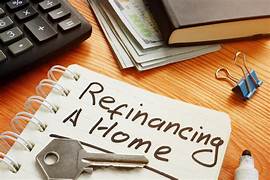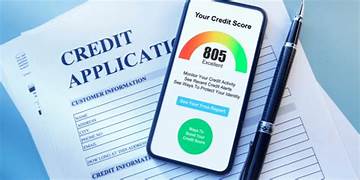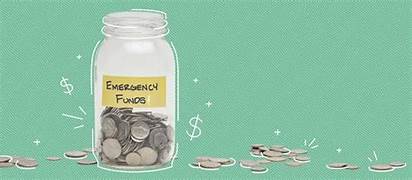Refinancing Your Mortgage: Is It the Right Move?
Refinancing a mortgage can seem like an appealing option for homeowners, but is it the right decision for you? Many homeowners consider refinancing in order to lower their interest rate, reduce monthly payments, or tap into home equity. However, the process is not as straightforward as it seems and requires careful consideration.
In this article, we will dive into the ins and outs of mortgage refinancing, exploring the potential benefits, the risks, and the key factors to weigh before making the leap. By the end, you’ll have a clearer understanding of whether refinancing is the best move for your financial future. Let’s take a look at what refinancing involves and whether it makes sense for your specific situation.
1. What is Mortgage Refinancing?
Understanding Mortgage Refinancing
At its core, refinancing your mortgage means replacing your existing home loan with a new one, typically with different terms. Homeowners often refinance to secure a lower interest rate, reduce monthly payments, or extend or shorten the length of the loan. Refinancing can also be an option if you wish to switch from an adjustable-rate mortgage (ARM) to a fixed-rate mortgage, or vice versa.
Refinancing can provide a financial boost in the short term, but it’s important to weigh the long-term implications before making any decisions.
When Should You Consider Refinancing?
Refinancing might be a good idea if any of the following apply to your situation:
- You can secure a lower interest rate: If interest rates have dropped significantly since you took out your original mortgage, refinancing could lower your monthly payments and save you money over the life of the loan.
- You want to switch mortgage types: If you’re currently on an ARM but prefer the stability of a fixed-rate mortgage, refinancing could give you peace of mind.
- You need to consolidate debt: Homeowners with significant high-interest debt, like credit card bills, can refinance their mortgage and tap into their home equity to consolidate these debts at a lower rate.
- You want to shorten your loan term: If you’re financially able to afford higher monthly payments, refinancing to a shorter loan term (e.g., 15 years) can help you pay off your mortgage sooner and save on interest.
2. The Benefits of Refinancing Your Mortgage
Lower Monthly Payments
One of the main reasons homeowners refinance their mortgages is to lower their monthly payments. If you can secure a lower interest rate, your payments may decrease, providing immediate financial relief. This can free up money for other priorities, like saving for retirement or paying off debt.
Better Loan Terms
Refinancing gives you the chance to negotiate better loan terms. For example, you may be able to switch from an adjustable-rate mortgage (ARM) to a fixed-rate mortgage, giving you predictable payments for the duration of your loan. Alternatively, you might refinance into a loan with a shorter term to pay off your mortgage more quickly.
Access to Home Equity
Refinancing can also allow you to tap into your home equity. If your property has increased in value, you may be able to refinance and withdraw cash for things like home improvements, debt consolidation, or other personal expenses. This type of refinancing is known as a cash-out refinance.
Shorten Your Loan Term
By refinancing to a shorter loan term, such as a 15-year mortgage, you can pay off your home faster and reduce the amount of interest you pay over the life of the loan. While your monthly payments may increase, the long-term savings can be substantial.
3. The Drawbacks of Refinancing Your Mortgage
Closing Costs and Fees
Refinancing isn’t free — it comes with closing costs that can range from 2% to 5% of the loan amount. These costs can include appraisal fees, application fees, title insurance, and other expenses. You need to calculate whether the savings from a lower interest rate will outweigh these upfront costs.
Extending the Loan Term
If you refinance to extend your loan term, you may reduce your monthly payments but end up paying more interest over the life of the loan. For example, refinancing a 30-year mortgage into another 30-year mortgage could lower your monthly payments, but you may ultimately pay more in interest over time.
Risk of Debt Consolidation
While tapping into your home equity can help you pay off high-interest debts, it can also be risky. By refinancing and using the cash to pay off credit card debt, for example, you’re turning unsecured debt into secured debt — meaning you’re using your home as collateral. If you’re unable to make payments on your new loan, you risk losing your home.
Possible Impact on Credit Score
Refinancing can have a temporary impact on your credit score. This is mainly because the process involves a hard inquiry, which can slightly lower your score. However, if you manage your finances well after refinancing and make timely payments, your credit score will likely recover quickly.
4. How to Determine If Refinancing Is Right for You
Assess Your Current Financial Situation
Before deciding to refinance, assess your current financial health. Take a look at your existing mortgage, your credit score, and your overall debt-to-income ratio. Refinancing typically makes sense when you have a strong credit score, as this will help you secure the best possible interest rate.
Calculate the Break-Even Point
To determine whether refinancing is financially worthwhile, calculate the break-even point. This is the time it will take for the savings from your new mortgage (lower monthly payments or reduced interest rates) to exceed the closing costs and fees associated with refinancing. If you plan to stay in your home long enough to reach the break-even point, refinancing may be worth it.
Shop Around for the Best Rates
Refinancing is a competitive market, and interest rates can vary greatly between lenders. It’s important to shop around and get quotes from multiple mortgage lenders before making a decision. This will ensure that you’re getting the best deal and are not overpaying for your new loan.
Consider Your Long-Term Goals
Think about your long-term goals when deciding whether to refinance. If you plan to move within a few years, refinancing might not be worth the effort, as you may not stay in the home long enough to recoup the costs. However, if you’re planning to stay in the property for many years, refinancing could be a smart choice.
5. The Refinancing Process: What to Expect
Step 1: Assess Your Financial Situation
Before applying for a refinance, gather all necessary documents, including pay stubs, tax returns, and details about your existing mortgage. Lenders will assess your financial situation to determine the new loan terms.
Step 2: Compare Lenders
Reach out to several lenders to compare interest rates, fees, and terms. The more options you have, the better chance you have of securing a competitive deal.
Step 3: Submit Your Application
Once you’ve chosen a lender, submit your refinance application and all required documentation. The lender will evaluate your financial health and decide whether to approve your application.
Step 4: Home Appraisal and Inspection
Most lenders will require a home appraisal to determine the current market value of your property. If the appraisal comes back lower than expected, it could affect your ability to refinance.
Step 5: Closing
After your refinance is approved, you’ll go through the closing process, similar to when you first purchased your home. You’ll sign paperwork, pay closing costs, and officially close on your new loan.
6. When Refinancing May Not Be the Best Option
You Have a Low Credit Score
If your credit score has dropped since you took out your mortgage, refinancing may not be the best choice. A low credit score could result in a higher interest rate, which would make refinancing less beneficial.
You Plan to Move Soon
If you plan on selling your home or moving in the next few years, refinancing might not be the best move. The closing costs associated with refinancing can take time to recover, and you might not stay in the home long enough to see the financial benefits.
You Have Little or No Equity
If your home has little equity or has decreased in value, you may not qualify for refinancing, or you could face higher interest rates. In some cases, refinancing might not be an option if you owe more than the home is worth.
Conclusion
Refinancing your mortgage can be a smart financial move under the right circumstances, but it’s not always the best option for everyone. To determine if refinancing is right for you, carefully assess your financial situation, consider your long-term goals, and calculate whether the savings will outweigh the costs. Be sure to shop around for the best interest rates, and make sure you understand the potential risks, such as extended loan terms and the possibility of adding unsecured debt to your mortgage.
By taking a thoughtful approach to refinancing, you can make an informed decision that supports your financial goals and helps you manage your home loan more effectively.
FAQs
1. How much does refinancing a mortgage cost?
Refinancing typically costs between 2% and 5% of the loan amount. This includes fees such as appraisal fees, closing costs, and title insurance.
2. Can I refinance with bad credit?
It’s possible, but refinancing with bad credit can result in higher interest rates or less favourable loan terms. It’s best to improve your credit score before refinancing if possible.
3. How long does it take to refinance a mortgage?
On average, refinancing takes between 30 to 45 days. However, the timeline can vary depending on the lender and the complexity of the application.
4. Is refinancing worth it if I only save a small amount each month?
It depends on your financial goals. If the savings are minimal and you don’t plan to stay in the home long enough to recoup the closing costs, refinancing may not be worth it.
5. Can I refinance if I have an FHA loan?
Yes, you can refinance an FHA loan through a program called the FHA Streamline Refinance, which allows for a simpler refinancing process with fewer requirements.
6. Should I refinance to pay off credit card debt?
Refinancing to pay off credit card debt can be a good option if you have significant equity in your home, but it’s important to be cautious as it involves turning unsecured debt into secured debt.
7. How often can I refinance my mortgage?
There’s no set limit, but frequent refinancing may not be financially beneficial. It’s best to refinance only when it makes sense for your financial situation.






